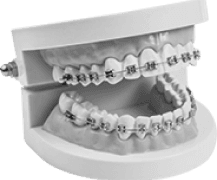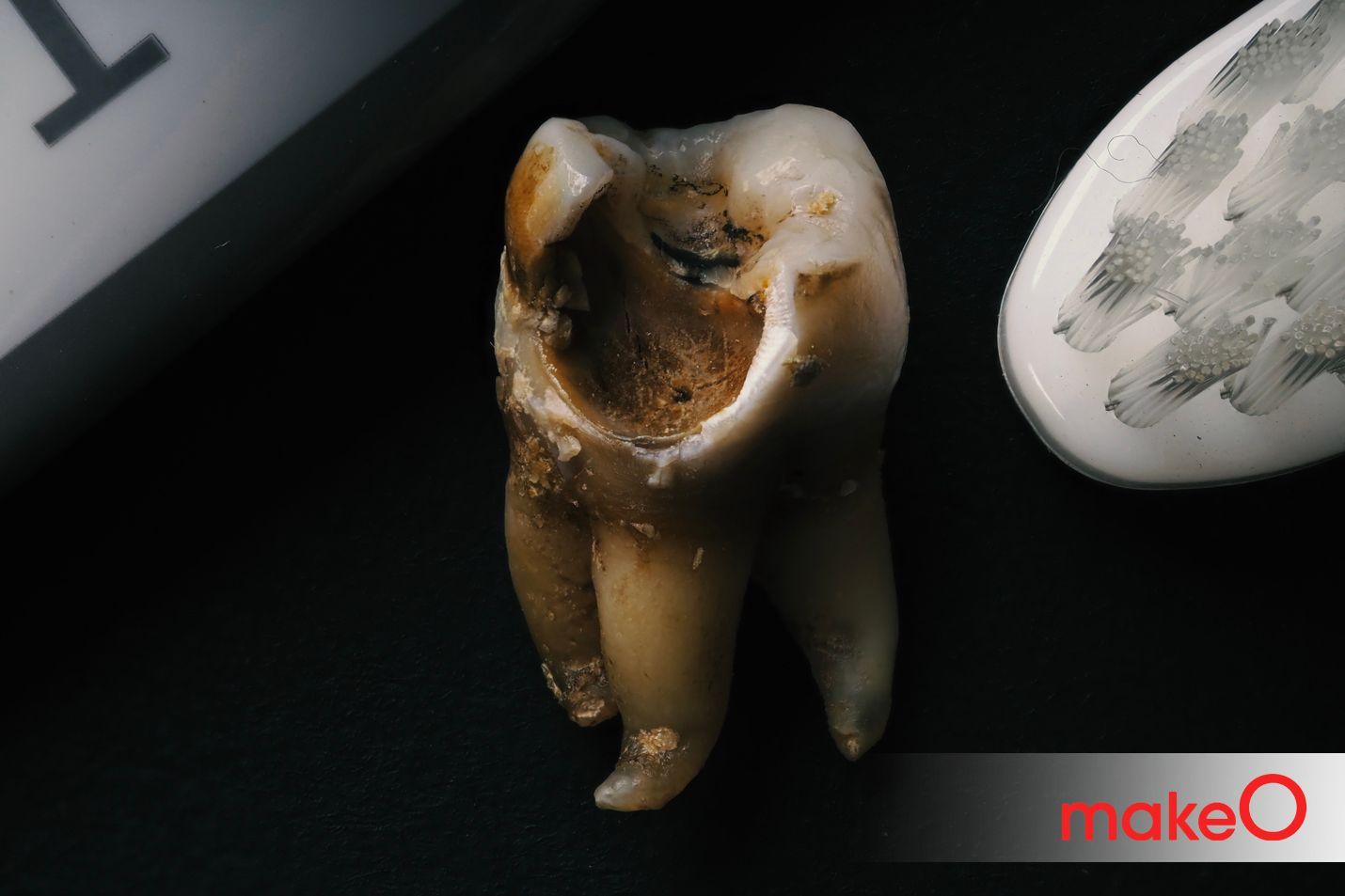MakeO blog
At some point in our lives, many of us face the classic dental conundrum: to remove or not to remove your wisdom tooth. It is a natural part of growing up. However, after a certain age, wisdom teeth may cause some discomfort and ignoring the warning signs can lead to a wisdom teeth infection. So what should you do about it? For our savvy readers keen on maintaining their oral health, this article serves as a detailed guide that explores the intricacies of wisdom tooth infection, its signs, symptoms, causes and how the trusted makeO toothsi oral care products can play a role in upgrading your daily oral care routine.
What is a Wisdom Tooth Infection?
A wisdom tooth infection, also known as 'pericoronitis', occurs when the third molar or the wisdom tooth at the back of your mouth becomes inflamed. This often occurs when the tooth doesn't have adequate space to emerge, leading to partial eruption or impaction.
This semi-eruption creates a pocket around the tooth where bacteria can lodge and multiply, resulting in an infection. The discomfort caused by this can range from mild soreness to acute pain.
Wisdom Tooth Infection Symptoms
If you are suffering from wisdom tooth pain, then it might be an infection. Here are some of the known wisdom tooth infection symptoms that you must know.
- Persistent pain or throbbing around the jaw
- Swelling and redness around the impacted tooth
- Bad breath or an unpleasant taste in the mouth
- Difficulty opening the mouth or swallowing
- Swollen and tender lymph nodes under the jaw
- Fever
Causes of Wisdom Tooth Infection
Curious to know what leads to wisdom tooth infection? Here are some of the primary causes of wisdom tooth infection that you must note.
1. Impacted Tooth
One of the primary reasons for wisdom tooth infection is when the tooth becomes impacted. An impacted wisdom tooth is one that hasn't fully erupted through the gum line. This could be because it's tilted sideways, facing backwards, or trapped beneath the gum tissue. Such partial eruptions create pockets where bacteria can thrive. Without enough space to grow normally, these teeth often become a breeding ground for bacteria, leading directly to infections.
2. Food Debris and Plaque Build-up
The position of wisdom teeth at the very back of the mouth can make them challenging to clean. Consequently, food particles might get trapped around a partially erupted wisdom tooth. Over time, these particles decay, and together with plaque, they promote bacterial growth.
3. Gum Disease
Pre-existing gum diseases can significantly increase the risk of a wisdom tooth becoming infected. When the gums are already weakened or inflamed from conditions like gingivitis or periodontitis, they become more susceptible to further bacterial invasion. This makes the area around an emerging wisdom tooth particularly vulnerable to infections.
4. Poor Oral Hygiene
Regular brushing and flossing are essential to remove food particles and bacteria from the mouth. Skipping these fundamental steps can provide bacteria with a conducive environment to multiply and eventually lead to infections, especially around areas that are already vulnerable, like a partially erupted wisdom tooth. Bring home makeO toothsi electro and Floss X smart water flosser to elevate your oral care game to the next level.
5. Oral Bacteria
Our mouths naturally house various bacterial species. While many of these are harmless or even beneficial, some can cause infections if they find the right environment to multiply. A wisdom tooth that's partially erupted or impacted can offer the perfect niche for these bacteria, leading to infections.
Wisdom Tooth Infection Treatment
The treatment for a wisdom tooth infection largely depends on its severity and cause. Some common wisdom tooth infection treatments include:
1. Antibiotics
When dealing with a bacterial infection, antibiotics are one of the most common treatment options. They work by targeting and killing the specific bacteria causing the infection, helping to reduce inflammation and alleviate pain. The type, dosage, and duration of antibiotic treatment will depend on the severity of the infection.
2. Oral Rinses
Using warm saline rinses or antiseptic mouthwashes can provide symptomatic relief and help in maintaining oral hygiene. They can reduce swelling, cleanse the infected area, and promote healing.
3. Surgical Removal
In recurrent cases or when the risk of future infections is high, extraction of the impacted wisdom tooth is often the recommended solution. The procedure involves a dentist or oral surgeon making an incision in the gum to remove the tooth. Depending on the tooth's position and root structure, the process may involve breaking the tooth into smaller pieces for easier removal.
4. Topical Creams & Gels
For some patients, topical gels or ointments with numbing properties might be prescribed. These provide temporary relief from pain and discomfort by numbing the affected area.
The Bottomline
A wisdom tooth infection can be easily managed and treated if detected and addressed at the right time.
Now bring home makeO toothsi’s tooth brightening gel, toothsi electro smart toothbrush or Floss X smart water flosser to upgrade your oral care regime like never before and prevent wisdom tooth infection and other common dental problems.
FAQs:
What triggers a wisdom tooth infection?
Impacted teeth, trapped food debris, gum disease, and poor oral hygiene are some of the main causes of a wisdom tooth infection.
Are all wisdom tooth infection symptoms noticeable?
No, they are not always noticeable. While symptoms like pain and swelling are evident, some infections can be asymptomatic in the early stages.
How can one prevent wisdom tooth infection?
Maintaining a good oral hygiene routine, regular dental check-ups, and using makeO toothsi’s advanced and new-age oral care products can significantly reduce the risk of developing wisdom tooth infection.
Is surgical removal the only wisdom tooth infection treatment?
No, while extraction is a common wisdom tooth infection treatment option, milder infections can be treated with antibiotics, pain relievers, and mouth rinses.
How long does it take for a wisdom tooth infection to heal?
This depends on which treatment option you opt for. Generally, with antibiotics, symptoms often improve within a few days. Surgical removal might comparatively require a longer recovery period.
related categories
Related articles

Types of Braces: Removable vs Fixed Braces, Which is Right For You?

This Diwali, Smile Bright With makeO Teeth Whitening Kit

Dr. Pravin Shetty: Pioneer in Lingual Orthodontics & Innovative Smile Solutions
How do I Know I’m the Right Candidate for makeO toothsi Teeth Aligners?

